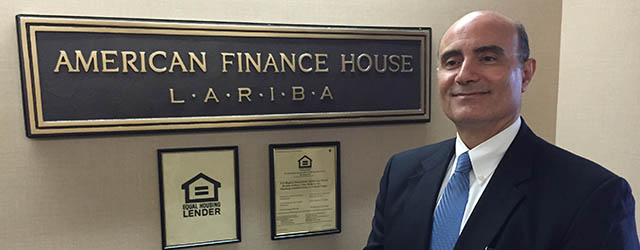Q&A with Mike Maguid Abdelaaty, president, American Finance House Lariba, Whittier, California

Table Of Contents
Global Finance: Do you participate in all major areas of financing?
Mike Maguid Abdelaaty: American Finance House is not a bank. It’s a finance company. We’re licensed to offer and have the capability to offer mortgage financing, auto financing and business financing.
GF: Who are your investors?
Abdelaaty: We have two main types of investors—private individuals who are primarily sophisticated accredited investors, and institutional investors like Freddie Mac and Fannie Mae.
GF: How big is the potential Islamic finance market in the United States?
Abdelaaty: The potential is somewhere between 500,000 and 750,000 households. Islamic institutions now have something like 20% to 25% of that.
Among American Muslims, about 20% would actively choose to seek out Islamic financing, and 40% to 50% would opt for Islamic financing if it were competitively priced—meaning as or less expensive than traditional financing. The rest simply don’t care.
So our growth strategy is focused on differentiating the services we provide, the benefits we provide, and then reaching out to people of all faiths. That’s the key to long-term success, as we see it. It’s about defining the riba-free [interest-free] lifestyle and the benefits it brings.
GF: How do you deal with the fact that you don’t have your potential clients’ full attention?
Abdelaaty: By competing on value, service and cost. Even though it’s Islamic financing, we want to make sure it’s competitive with what is available outside.
GF: But given the nature of Islamic financing, isn’t that a tricky calculation?
Abdelaaty: We make a number of adjustments. The main difference and the value added is that we approach each transaction as an investment. Before we approve it, we evaluate whether it’s a good investment for the client and for us.
We calculate a rate of return on the investment that we can compare with what banks are charging. If, for example, a client is looking to finance a house that generates a 5% rate of return on investment and he is looking to do a 30-year mortgage that a regular bank would give him for 4%, then we agree to reduce the rate of return.
GF: Acknowledging that the Islamic business model precludes charging interest, would the possibility of an eventual rate increase affect that strategy?
Abdelaaty: No, because our payments are calculated at the onset, based on the rental value of the market.
GF: How do you deal with misapprehensions about Islamic finance, like the borrower pays only the principal? That anybody can get approved for financing? That you are a lender of last resort?
Abdelaaty: We explain that we have underwriting guidelines that we adhere to and that have been proven. We explain that we have a fiduciary responsibility to protect our investors so we evaluate customers’ financial histories very carefully. We look at their background, income history—all the things traditional banks look at.



